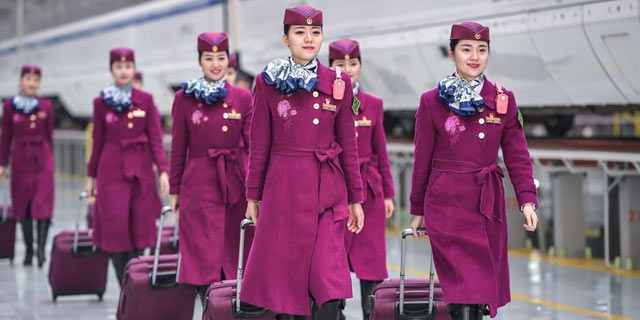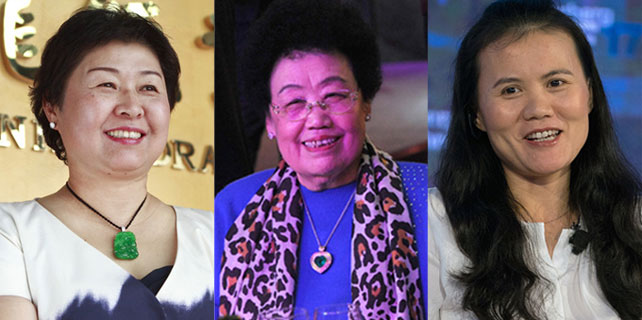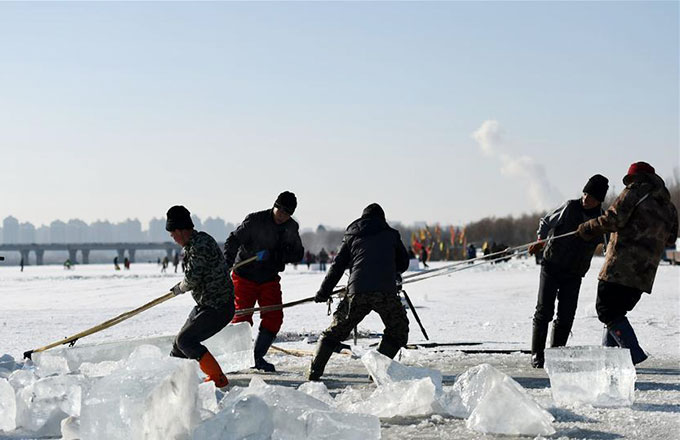China still grappling with coaching conundrum
Li Xiaopeng's recent appointment as head coach of Shandong Luneng has aroused heated debate about the dearth of local talent in the domestic game.
Replacing German Felix Magath, Li became Luneng's first homegrown boss in its 20-year history.
Li is also something of a rarity in the Chinese Super League, with only three out of 16 clubs having domestic coaches at the helm.
New draft measures designed to stimulate domestic soccer offer hope that imbalance could soon shift.
The Chinese Football Association (CFA) has proposed that top-tier and second-division clubs must have at least one Chinese under-23 player in its XI throughout a game, starting from the 2018 season. In addition, the governing body plans to make it mandatory for teams to have at least two under-21 players on the bench for each match.
However, even if these rules are implemented, major challenges remain for local talent, particularly among the coaching ranks.
Looking local
Magath came to Luneng in June 2016, rescuing it from relegation before finishing sixth last term.
His departure made him the third big-name foreign coach to leave China in the offseason, following Andre Villas-Boas' exit from Shanghai SIPG and Luiz Felipe Scolari, who quit champion Guangzhou Evergrande.
The 42-year-old Li, who spent his entire playing career with Luneng, was one of the key members of China's solitary World Cup finals experience, in 2002. He helped Luneng win two top-flight league titles (one in its previous incarnation as the Jia-A League) and the CFA Cup three times.
He started working with Luneng as assistant manager in December 2015 after serving as head coach of the women's national team and general manager of Shijiazhuang Everbright.
Hao Wei, who managed the Chinese women's team from 2012-15, has been named assistant coach and technical director of Luneng.
The club said that plans to name a local head coach were long in the making.
"We have always been dedicated to the development of local, young coaches since the club's inception," said Luneng in a statement. "It is with this in mind that we have hired foreign coaches: to provide domestic coaches with opportunities for learning. The ultimate goal has always been for the good of Chinese soccer."
Changchun Yatai and Shanghai Shenhua have also turned to Chinese coaches, appointing Chen Jingang and Wu Jingui respectively. In the second tier, former Everton midfielder Li Tie has been hired at Wuhan Zall and Zhu Jiong at Shanghai Shenxin.
Talent drain
Since the CSL began in 2004, only four Chinese have won the Coach of the Year award, with Ma Lin the most recent recipient in 2011.
Of the eight coaches to have lifted the CSL trophy, only two have been Chinese - Zhu Guanghu of Shenzhen Jianlibao in 2004 and Gao Hongbo of Yatai in 2007.
Last season, only three out of 16 teams employed Chinese head coaches, and all three were replaced by foreigners by the season's midpoint.
Things don't look much better at present for local talent on the pitch. Wu Lei of Shanghai SIPG was the only homegrown player to feature in the CSL's top-20 scoring chart by the end of last term, finishing second.
The massive expenditure on big-name foreign players such as Carlos Tevez, Oscar and Hulk has put the CSL in the global spotlight in recent years.
However, with domestic clubs coming up short in the Asian Champions League and the national team still struggling, China has begun to realize the importance of nurturing local talent.
The CFA has taken action accordingly, introducing the under-23 player quota and also imposing a tax on deals for foreigners, making clubs pay an amount equivalent to the transfer fee to a soccer development fund.
Back to school
China plans to become a world soccer superpower by 2050, and, in the process, to get 50 million children and adults playing the game by 2020. It also aims to train 50,000 full-time and part-time coaches by 2020.
But there remains a major shortage of qualified coaches here, especially at grassroots level. The preference for foreigners has resulted in a lack of investment in coaching, while many former Chinese professional players prefer to follow management or business career paths after hanging up their boots.
The CFA is planning to address these issues by developing a network of high-quality grassroots coaches, with a special focus on eliciting more participation from schools, and continuing to encourage players to earn their coaching badges. Last month, the governing body revealed it has launched coach-training courses for players at 48 professional clubs.
The CFA, though, denied rumors it will take drastic action by banning foreign coaches from the CSL.
"Chinese soccer is always open to the world, because we can always learn from high-level soccer talent," said CFA vice-president Li Yuyi at a recent industry forum.
"We certainly are determined to develop domestic coaches and youth training, and that forms our foundation for soccer success."
Xinhua
|
Left to right: Li Xiaopeng (Shandong Luneng), Wu Jingui (Shanghai Shenhua) and Chen Jingang (Changchun Yatai) are the only Chinese head coaches in the CSL at present. Eleven clubs are managed by foreigners while Henan Jianye and newly promoted Dalian Yifang are yet to name their coaches for the new season. Provided to China Daily |
(China Daily 12/13/2017 page24)

















